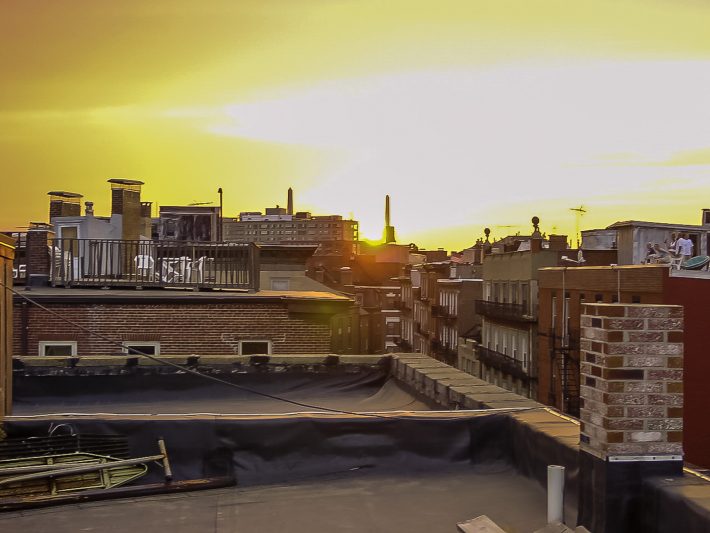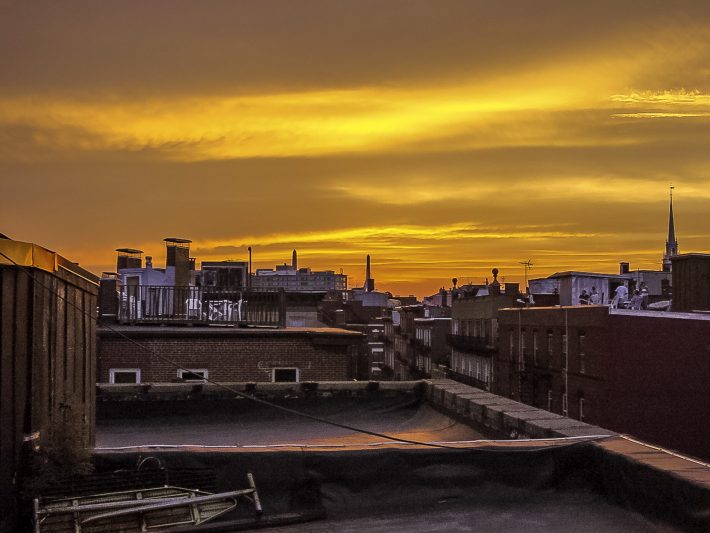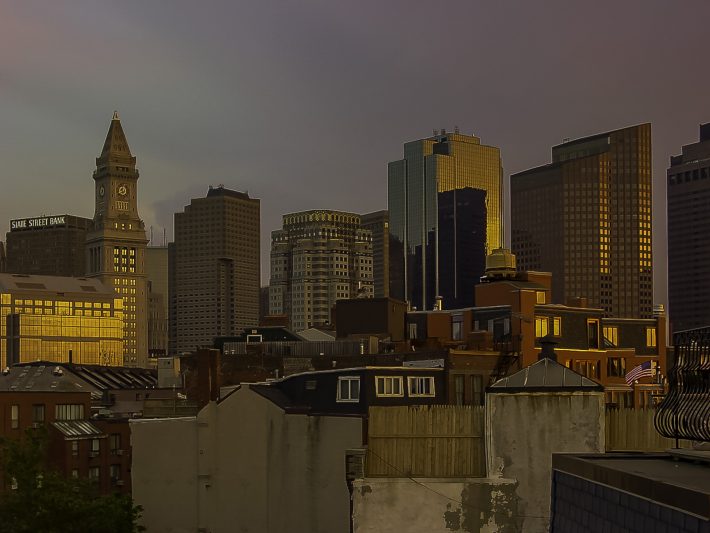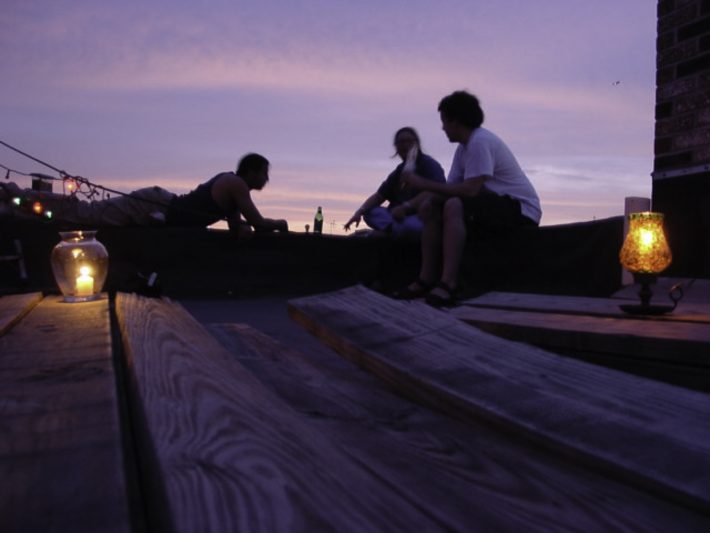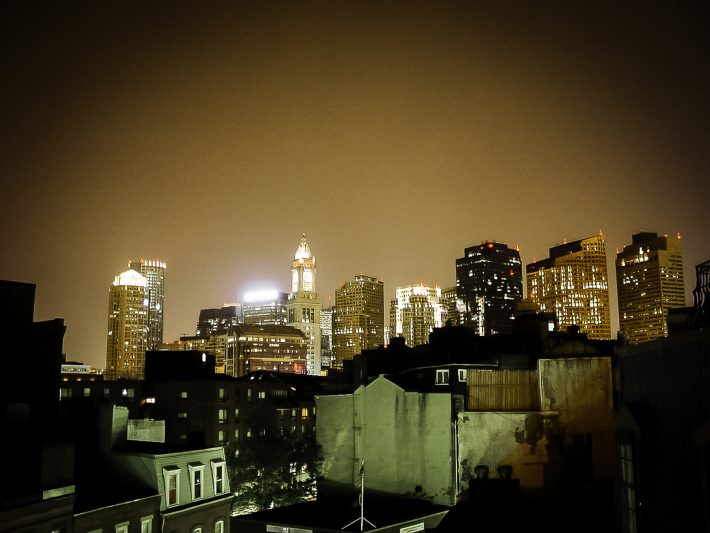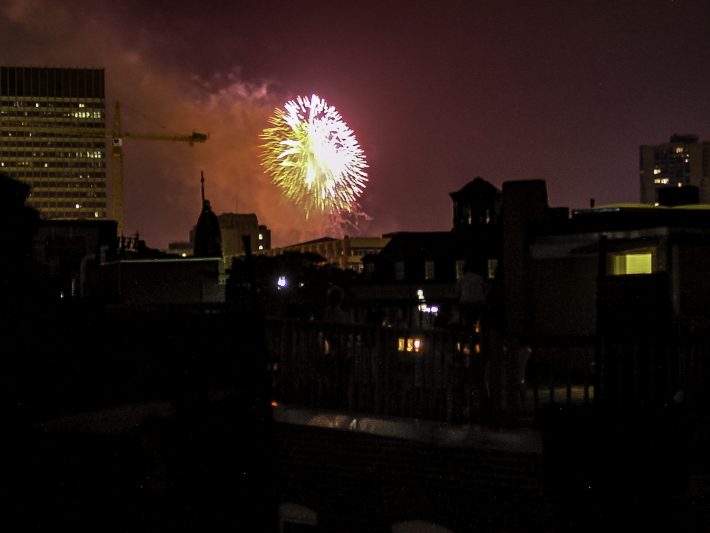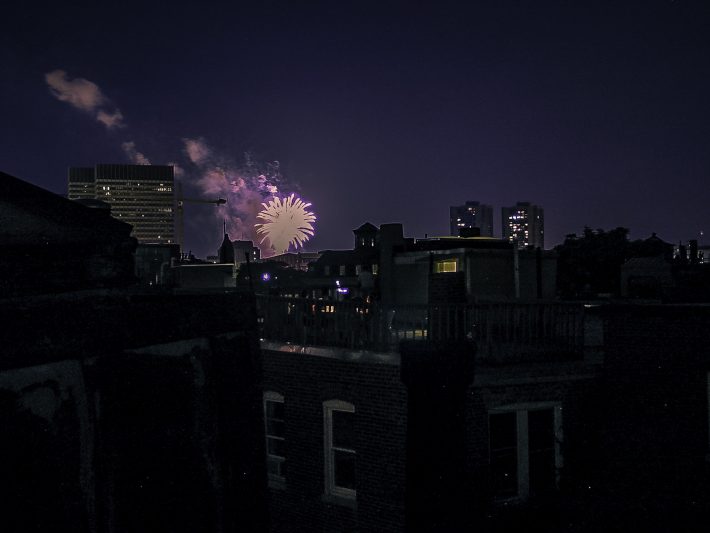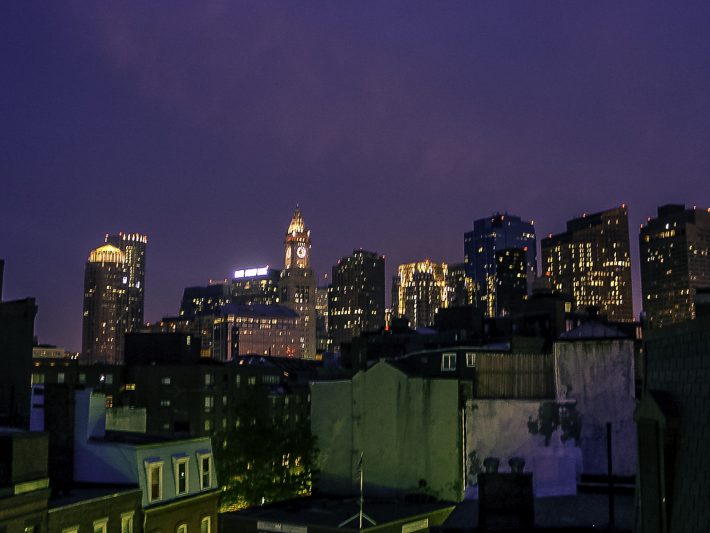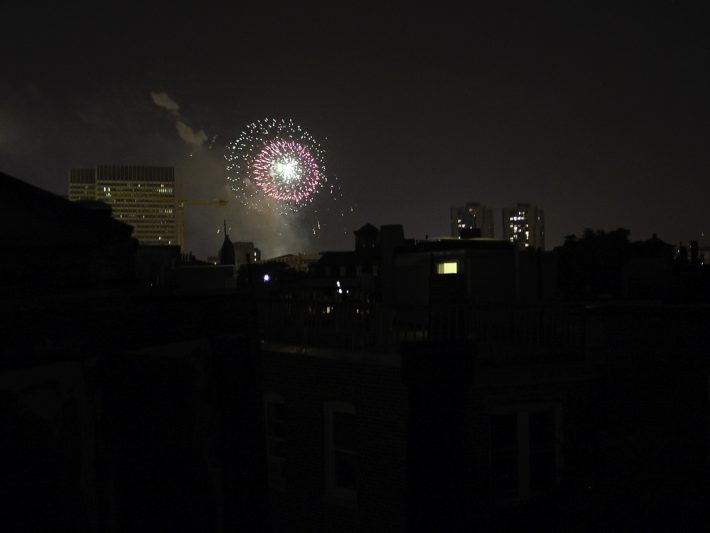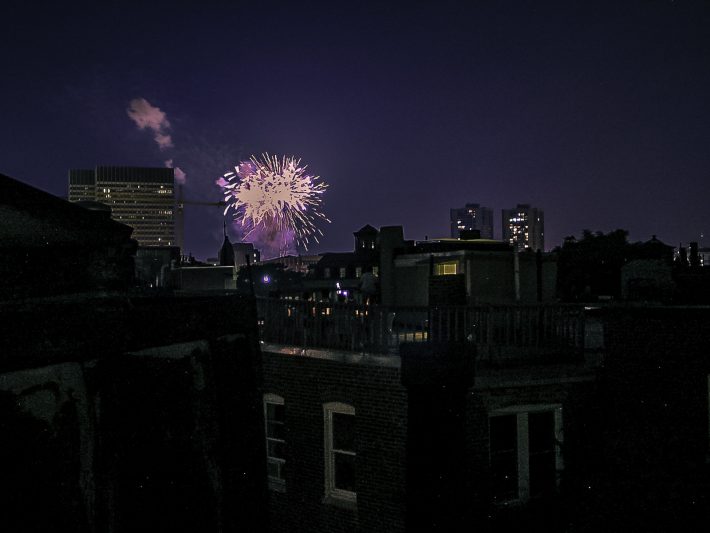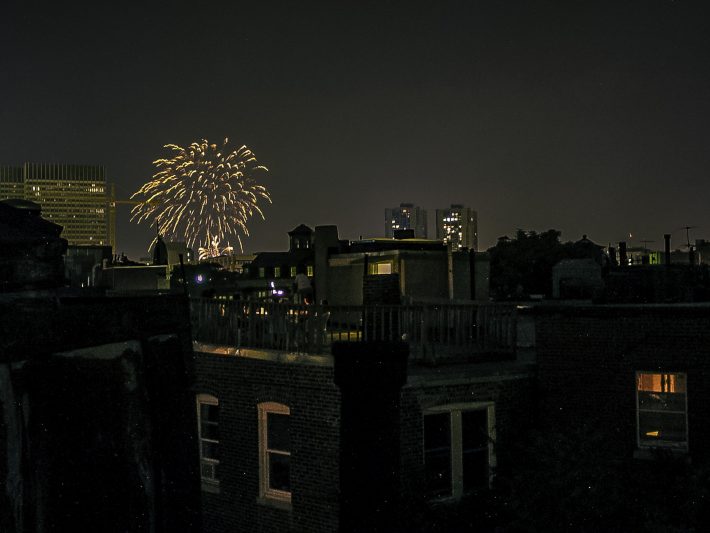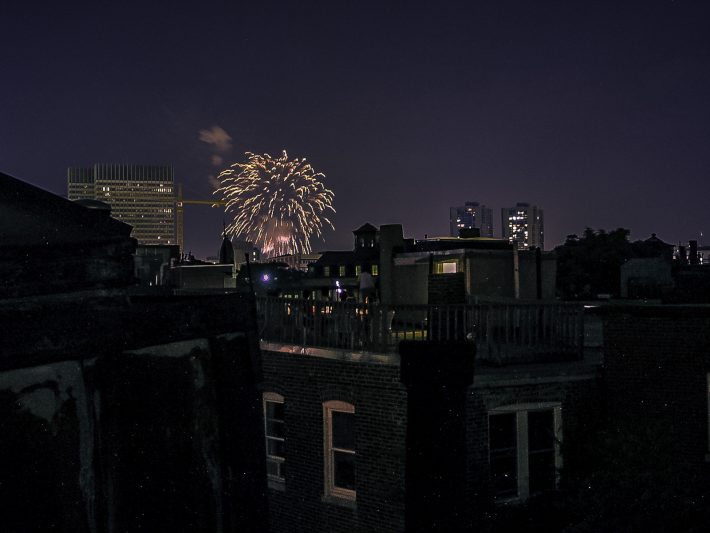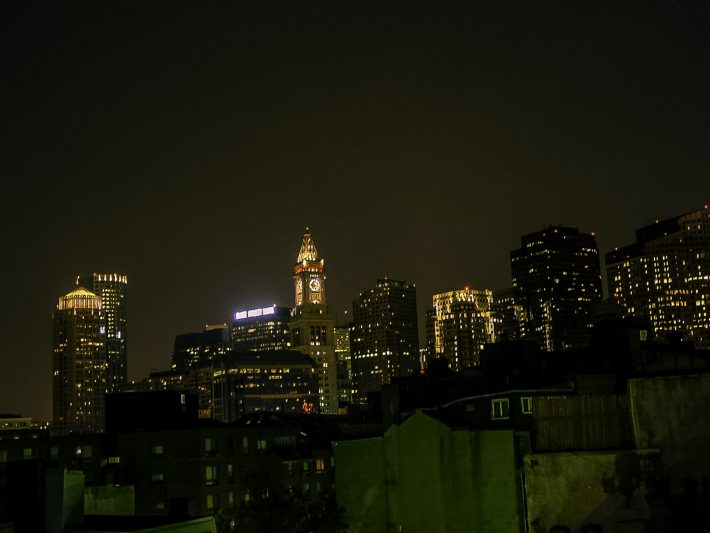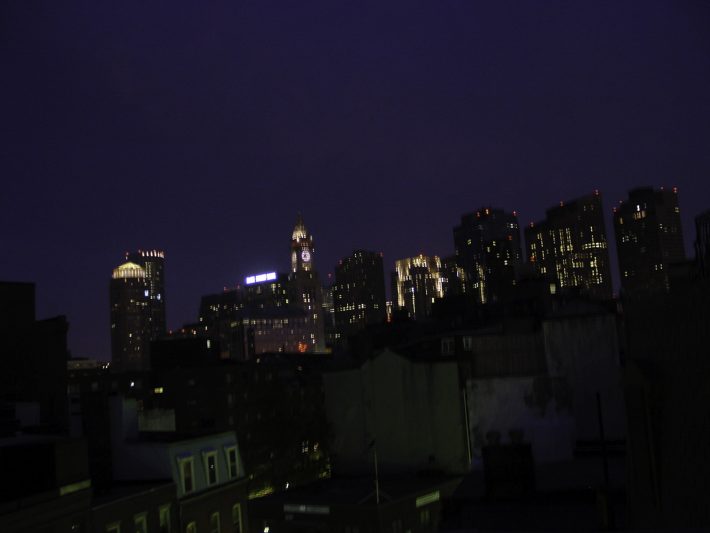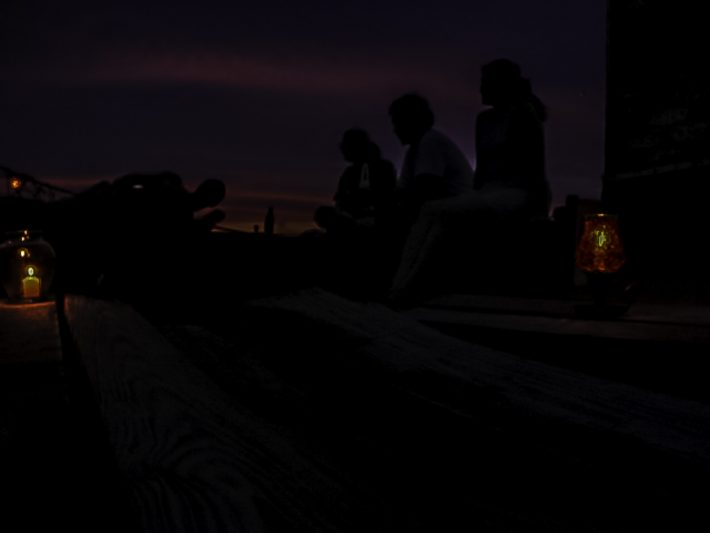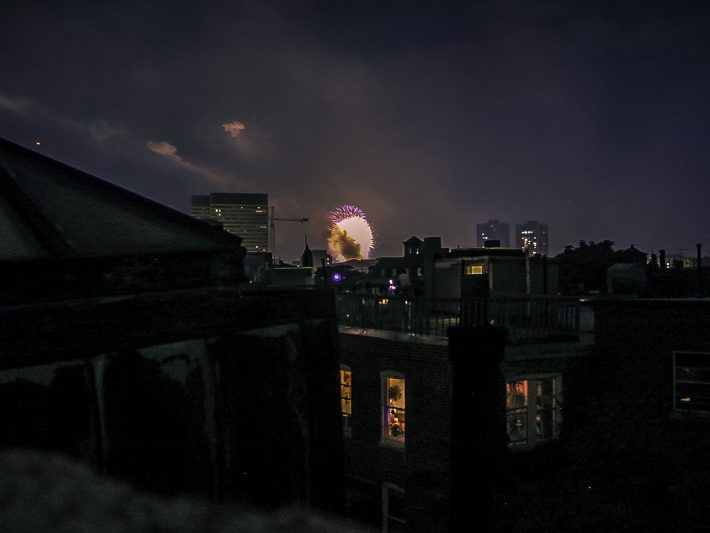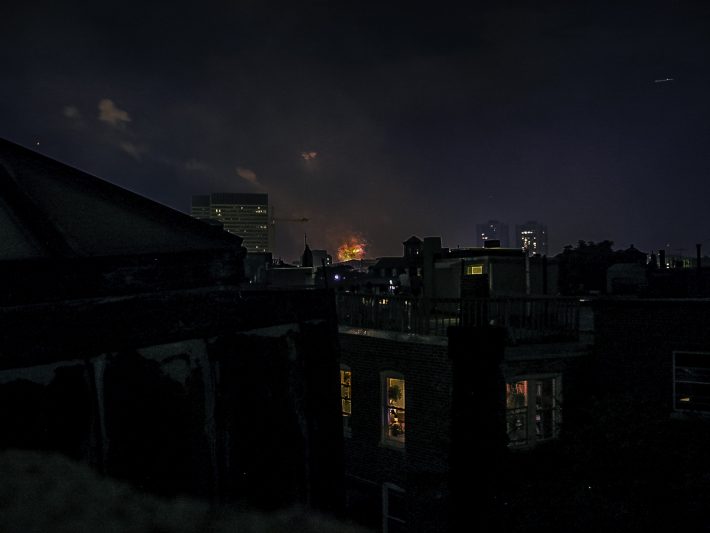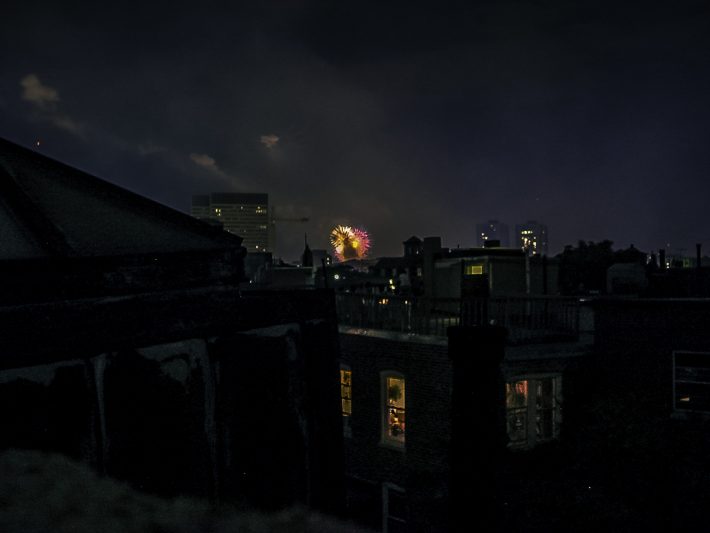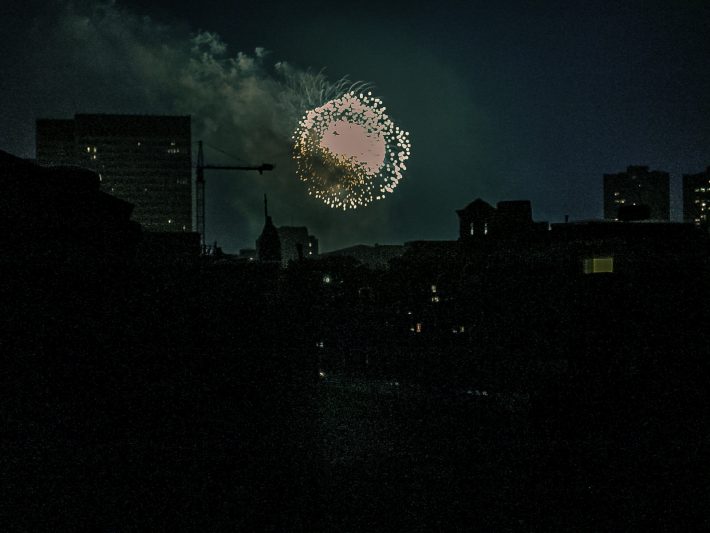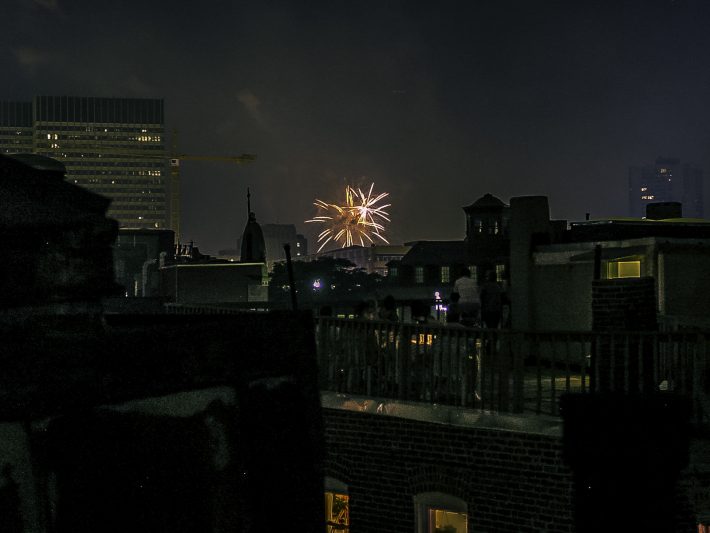Bristol — miasto w ktorym wychowal sie Gary. Mniej wiecej tak duze jak Kingsport ale o nieco innym charakterze. Spedzilismy tam pol dnia w piatek. Gary pokazywal mi dom w ktorym sie wychowal, szkoly do ktorych chodzil, miejsca ktore odwiedzal. W piatek odbylismy podroz do przeszlosci. Domek, niestety nie zrobilam zdjecia, bardzo ladny, w bardzo spokojnej okolicy. Osiedle domkow zupelnie odciete od glownych drog–bardzo bezpiecznie, zeby tam wychowywac dzieci. Okolica na prawde ladna. Teren pagorkowaty, dookola ladne domy, duzo zieleni, sporadycznie ogrodki z kwiatami–idelalne osiedle dla rodziny. Jedna rzecz jednak mnie zasmucila aczkolwiek nie zaskoczyla. Osiedle sprawia wrazenie opuszczonego — po prostu zywej duszy nie widac. Jedynie fakt, ze wszystko jest tak zadbane uswiadamia, ze jednak ktos tam mieszka. Dziwni sa ci Amerykanie, wszedzie widzi sie piekne domy, wszedzie mnustwo samochodow, smilam sie wczoraj, ze Ameryka to jeden wielki parking ale ludzi nigdzie nie widac…
Bylismy w starej podstawowce Garego, w szkole sredniej i na uniwersytecie. Oczywiscie ogrom, przestrzen, funkconalnosc, wyposazenie robia wrazenie jak wszystko tutaj. Przechadzalismy sie po placu zabaw szkoly podstawowej, Gary przypominal sobie wszystkie sztuczki jakie robili z kolegami w malpim gaju.
I was surprised by the playground on the school grounds. This is supposedly for high school students’ children. It’s not that I was thinking that the morality in American schools is lower than that in Polish schools because they’re certainly comparable. I was thinking, though, of Mrs. Stopkowa, the director of our high school. Even thinking about such a thing would, for her, be “demoralization of children.” I remember that she once didn’t allow a student to take the matura [high school exit exam] because she was pregnant.
Liceum–no coz, my nie mielismy hali sportowej, ani auli o basenie nawet nie bylo co marzyc. Ale to sa standardy do ktorych mozna przywyknac ogladajac amerykanskie filmy. Zaskoczyl mnie plac zabaw na terenie szkoly. Podobno to przedszkole dla dzieci uczniow szkoly sredniej. Nie chodzi o to ze pomyslalam sobie, ze morale w szkole amerykanskiej jest mniejsze niz w polskiej, pewnie to sie wyrownuje. Pomyslalam sobie o pani Stopkowej, dyrektorce naszego liceum. Ona, sama mysl uznalaby za demoralizujaca mlodziez. Pamietam przeciez przypadki, ze dziewczyna nie zostala dopuszczona do matury tylko dlatego, ze byla w ciazy…
Uniwersytet — wydal mi sie bardziej angielski, w bardzo pozytywnym tego slowa znaczeniu. To niesamowite jak wszystko co wydaje sie bardziej europejskie niz amerykanskie przykuwa moja uwage. To zabawne ale ogladam sie w sklepie za kobietami w sukienkach — zaloze sie ze plynie w nich europejska krew.
Bylismy w pieknym parku. Wlasciwie w centrum miasta ogromne hektary ziemi to park, tylko amerykanie moga sobie na to pozwolic. Park podzielony na rozne sekcje, czy czesci. W jednej czescie roznego rodzaju boiska sportowe, w nastepnej miejsca na piknik, dalej place zabaw dla dzieci, dalej sciezki spacerowe a wreszcie bardzo ladny rezerwat przyrody. Tam tez pojechalismy. Zaparkowalismy nasza toyote zaraz przed wejsciem i poszlismy na spacer. To byl rezerwat na terenie mokradel. Szlismy lasem pomiedzy bagiennymi plytkimi stawami. Sciezki spacerowe to swietnie przygotowane drewniane pomosty (nasz stopa nie postala na lesniej sciezce) spotkalismy toche dzikich kaczek i gesi. Miejsce na prawde bardzo ladne–i co ?–oczywiscie nie spotkalismy zadnych innych spacerujacych… — czy to jest taki stary europejski, wymierajacy zwyczaj.
